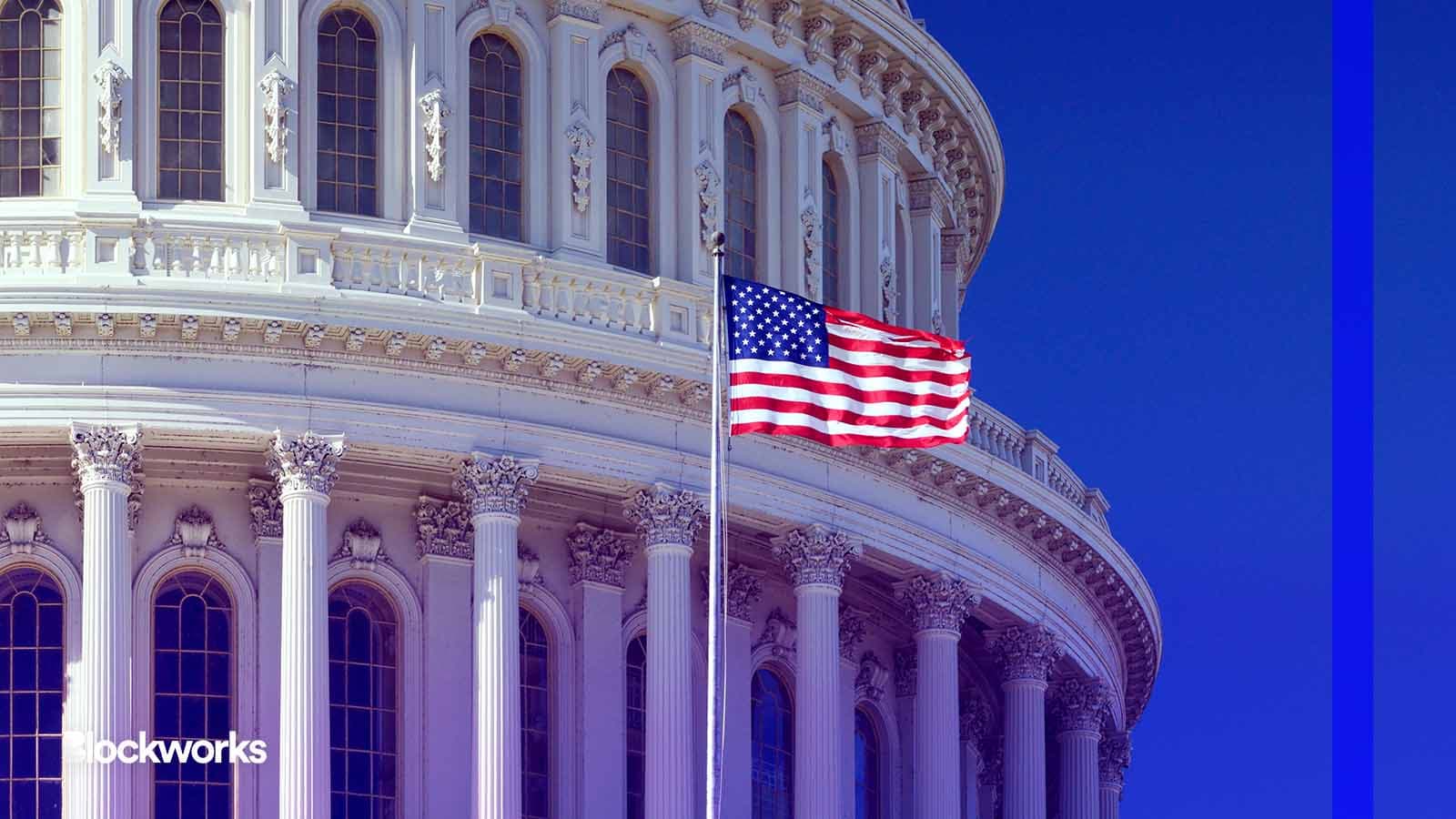Proposed crypto bill would help clear up latest SEC allegations: Rep. Hill
Texas Blockchain Council president and McKinsey & Co. partner not optimistic on prospect of proposal’s passage

Orhan Cam/Shutterstock modified by Blockworks
Congress’ latest proposed crypto bill would take away the “haphazard, schizophrenic” ways of regulators that have laid down enforcement on large industry players, according to US Rep. French Hill.
But the planned framework could have trouble passing anytime soon, some said.
The Republican congressman from Arkansas noted in an interview shown at the DACFP Vision conference in Austin, Texas on Tuesday that passage of crypto regulation is “a heavy lift,” as reactions from fellow policymakers are mixed.
Hill, vice chair of the House Financial Services Committee and chair of the subcommittee on digital assets, financial technology and inclusion, said during an April hearing on stablecoins that the “turf war” between the SEC and the CFTC over crypto is “unhelpful” and “unsustainable.”
Since then, Reps. Patrick McHenry, R-N.C., and Glenn Thompson, R-Penn., earlier this month introduced what they called a Digital Asset Market Structure draft.
The framework seeks to give the CFTC jurisdiction over digital asset commodities — if certain conditions around decentralization and functionality are met — while allowing the SEC to make arguments for crypto assets it feels are securities.
It would also allow crypto platforms to register with the SEC as an alternative trading system, and with the CFTC as a digital commodity exchange.
Hill said Tuesday that education around the proposal, and the broader crypto space, will be critical. A number of “roundtables” have occurred in recent weeks, and the House Financial Services and Agriculture committees continue soliciting feedback on the draft.
“You’ll see that continue to advance over the next two, three or four weeks as we do more work on it,” Hill said. “This is not a partisan issue. This is a bipartisan issue.”
The bill’s focus on clearing up token classification comes after SEC Chair Gary Gensler failed to give a clear answer to McHenry’s question at a hearing in April on whether ether was a security or a commodity.
Gensler has been “a bit of an impediment” in terms of having “a reasonable conversation” around crypto as the proposed bill was drawn up over the last three or four months, Hill said.
The SEC claimed Coinbase was operating as an unregistered exchange and alleges Binance engaged in the unlawful sale of securities, among other charges. The regulator labeled more tokens as securities as part of the two lawsuits.
“Our market structure bill would clear up, I don’t want to say 100% of these issues or challenges in and around all this…but it’s going to clear up the vast majority of the assertions of what Mr. Gensler and others are saying is not being done to whatever standard,” Hill said.
Chances of passing?
Lee Bratcher, president of the Texas Blockchain Council, said during a panel at the DACFP Vision conference that though he supports the McHenry-Thompson proposal, he doesn’t think there is enough “political capital” in the Senate to get it passed.
“I think [the Republicans] are optimistic publicly because they want to be seen as the innovators,” he said. “I think privately, if you asked them, they know that this is going to run into some problems in the Senate.”
Julian Sevillano, a digital assets-focused partner at consulting firm McKinsey & Company who touted the bill’s “fundamental building blocks” during a separate panel, also doesn’t expect passage anytime soon.
“What we’ve heard in the industry is we don’t think any significant crypto regulation will pass because it’s not a priority within the year we have right now,” he said. “It’s an election cycle.”
The bill doesn’t have Democratic sponsorship yet, Sevillano added.
Sens. Cynthia Lummis, R-Wyo., and Kirsten Gillibrand, D-N.Y., have their own crypto-focused proposal they had planned to reintroduce: the Responsible Financial Innovation Act.
“We met with them obviously and they are glad to see the intensive work we’re doing in the House on drafting [a bill] and the concepts we’re spelling out that may assist them with what they’re doing,” Hill said. “We look forward to hearing their best ideas in the Senate on the approach they might take.”
Get the news in your inbox. Explore Blockworks newsletters:
- The Breakdown: Decoding crypto and the markets. Daily.
- 0xResearch: Alpha in your inbox. Think like an analyst.






